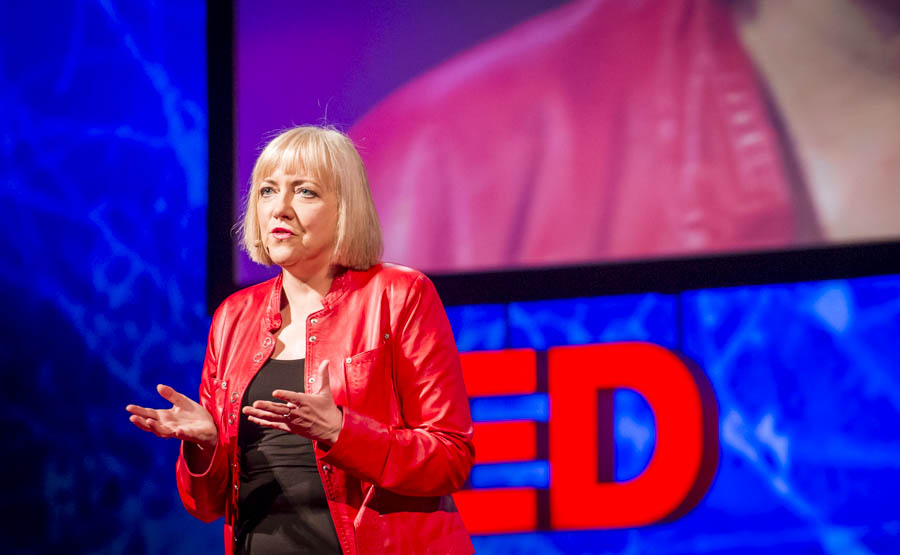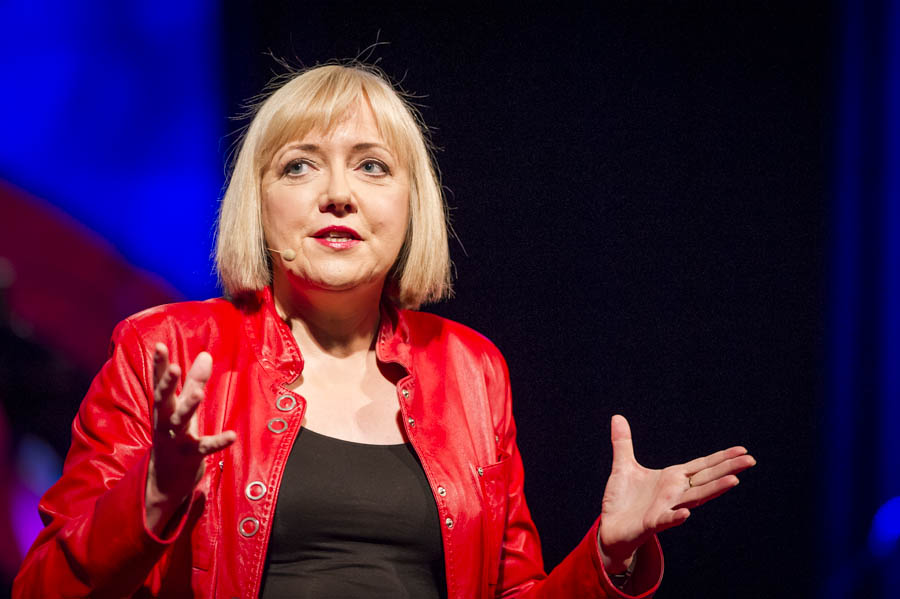You have a choice: You can read this blog post, or not. Simple. Or you can read one of 80 other blog posts from this conference. Which to choose? At TED we’re no strangers to the paradox of choice, but today Slovene philosopher Renata Salecl takes a different look at choice, chance and how they lead to a denial of social change.
In our post-industrial capitalist age, says Salecl, choice, freedom and self have been elevated into an ideal — the ideal. But the flip side are increased feelings of anxiety, guilt and inadequacy at facing the possibility of not “making it” — that is, not reaching the ideal. What’s strange, says Salecl, is that people turn this anxiety inward, indulging in self-critique, rather than social critique. Ultimately this has made us unable to move toward social change; our abundance of choices has made us politically passive.
Salecl gives the example of her friend Manya, who worked as a student as a car dealer. Customers would come in, describe what they needed, and Manya would help them pick out the right car for their budget and needs. But just before they were about to leave to go home and deliberate, she would say, “The car you are buying is perfect. But in a few years’ time, when your kids are out of the house, when you will have a little more money, that other car will be ideal. … But what you are buying now is great!” The majority of customers came back the next day and bought the other car, the one they didn’t need, the one that costs way too much money. Manya was able to paint a picture in her customers’ heads: the image of an idealized version of themselves and a place in the future where they wanted to be. Buying that car made them feel like they were closer to becoming the person they wanted to be.
There are so many unexplainable aspects of our decision-making process, as we know. Making choices is clearly not purely rational — and despite what we think, nor is it a purely individual task. It’s a social one; we’re constantly plagued by choosing what’s socially desirable. And even after we make our choices, the anxiety doesn’t end. We continue to read reviews to reassure ourselves we made the right choice.
Chance, says Salecl, is becoming traumatic. As Kierkegaard suggested, anxiety is linked to the possibility of possibility. And when the possibilites become too great, this anxiety turns us to denial. In an age drowning in information — big data, the human genome, and so on — ignorance is on the rise. According to Salecl, we sit in passive denial of all sorts of problems: economic, ecological, and so on. She says, “As psychoanalysts know, people don’t have a passion for knowledge; they have a passion for ignorance.”
This is detrimental when it comes to social change. Salecl asks: “Why do we still rely on the idea of the self-made man, which capitalism is based on?” Consider, she says, poor people who don’t support the idea that the rich should be taxed more. They have a lottery mentality, thinking “I’m not rich but my son may be someday, so why would I tax my son?” Or the issue of health care, imagine the people without health insurance who don’t want universal healthcare because they want to have a choice. But, says Salecl, they have nothing to choose.
After all her research, Salecl for one has stopped taking choices too seriously. They’re irrational, often made in the unconscious, and based on the opinions of others. For her, the place it matters most is where it’s used least: in the social arena. Which brings her to a closing — and hopeful — note: That as nations, and as people, we have the choice to rethink the kind of society we want to live in.


Comments (11)
Pingback: Plain Pages | ☁
Pingback: The real ‘Dragons’ Den’ | Decision Making Blog
Pingback: Too many choices? | Decision Making Blog
Pingback: Household Behavior | Whitfield Economics
Pingback: Slave to Freedom | The Political Hat
Pingback: Too Many Notes? | Electricity Blog News Aggregator
Pingback: Reflections on TEDGlobal 2013: If you thought it lasted for a week, then “Think Again” | BizBox B2B Social Site
Pingback: Renata Salecl: The Tyranny of Choice | allfiredupmedia.com
Pingback: Naloga umetnosti je eksperimentiranje